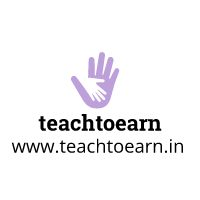
Many parents today feel trapped in a schooling system that no longer serves their children’s best interests. They see their kids burdened by rote learning, exam stress, and an outdated curriculum—but they hesitate to explore alternatives. The fear of making the wrong choice, societal expectations, and the lure of prestigious college placements often hold them back.
But what if there was a better way? A model that nurtures independent thinking, creativity, and real-world skills without the constraints of traditional schooling? In this conversation, Dr. Malpani and a concerned parent discuss the limitations of conventional education and the promise of digital learning pods—a revolutionary way for children to take charge of their own learning.
Dr. Malpani: You know, I talk to so many parents who are frustrated with the traditional schooling system. They complain about the rote learning, the stress, the outdated curriculum—yet they’re still hesitant to try an alternative. Why do you think that is?
Parent: Honestly, Dr. Malpani, I think it’s a mix of fear, inertia, social pressure, and maybe even ignorance. We grew up with a rigid schooling system, and while we know it’s flawed, it’s familiar. Trying something new feels risky.
Dr. Malpani: That’s exactly it. Parents are trapped in a cycle where they see the problems, but they don’t act because they’re afraid of making the wrong choice. What if an alternative education doesn’t work? What if their child falls behind? What will society say?
Parent: And let’s not forget, schools have a strong marketing machine. The moment a parent expresses doubts, the school reassures them with promises of future success—great board results, prestigious college placements, and so on. It’s hard to argue with that.
Dr. Malpani: But let’s be honest—how much of that is real, and how much is just an illusion? Yes, schools can get kids into college, but are they really preparing them for the real world? Are they making them independent thinkers or just obedient rule-followers? The irony is that parents want their children to be able to think “out-of-the-box”, but when it comes to educating them, they prefer sticking to the known devil !
Parent: That’s my biggest concern. I see my child cramming information, memorizing formulas, and stressing over exams, but he isn’t excited about learning. He’s just performing.
Dr. Malpani: Exactly! And that’s where alternative education comes in. Parents assume that if they step outside the system, they’ll be alone. But that’s not true. Look at IB schools—when they first came to India, they were niche, expensive, and unfamiliar. Today, they’re a mainstream option. Why? Because they focused on a different learning model—one that values curiosity, application, and real-world skills.
Parent: So, are you saying we need to create a similar alternative model that makes self-directed learning mainstream?
Dr. Malpani: Yes! And the good news is, we already have the tools to do it. With the internet, kids can access world-class education for free. Platforms like Khan Academy, Coursera, and YouTube give them direct access to the best teachers in the world. What’s missing is the right learning environment—one that encourages autonomy instead of blind obedience.
Parent: But how do we create that? Schools have structure, teachers, and peer groups. How do we replicate those benefits without the baggage of traditional schooling?
Dr. Malpani: That’s where digital learning pods come in. Imagine small, community-driven learning centers where kids learn at their own pace, guided by mentors instead of rigid teachers. They have access to technology, resources, and collaborative learning—but without the pressure of marks, uniforms, and mindless discipline.
Parent: That sounds incredible, but is it realistic? Won’t parents resist?
Dr. Malpani: They will—at first. But change starts with pioneers. IB schools didn’t become mainstream overnight. It took a few bold parents willing to experiment. The same will happen with self-directed learning pods. The first few families will take the leap, and once they see their kids thriving—developing skills, solving problems, learning independently—others will follow.
Parent: But what about exams? College admissions? If alternative education doesn’t prepare kids for competitive exams, won’t it be limiting?
Dr. Malpani: That’s another myth that needs to be busted. Colleges today are recognizing portfolios, real-world projects, and problem-solving skills over rote memorization. In fact, students from non-traditional backgrounds often stand out because they’ve done something different. Plus, online certifications and competency-based assessments are becoming accepted worldwide.
Parent: You’re right! But how do we convince more parents to take this step?
Dr. Malpani: By showing them success stories. By creating learning communities where parents can see firsthand how their kids can learn better outside a traditional school. And most importantly, by reminding them that education isn’t about grades—it’s about preparing children for a fulfilling, meaningful life.
Parent: This is eye-opening. I think more parents would embrace this if they just had the right guidance and community support.
Dr. Malpani: And that’s why we need more parents to take matters into their own hands. Start your own digital learning pod—your children will not get a second chance! https://www.teachtoearn.in/start-a-teach-to-earn-learning-pod/
